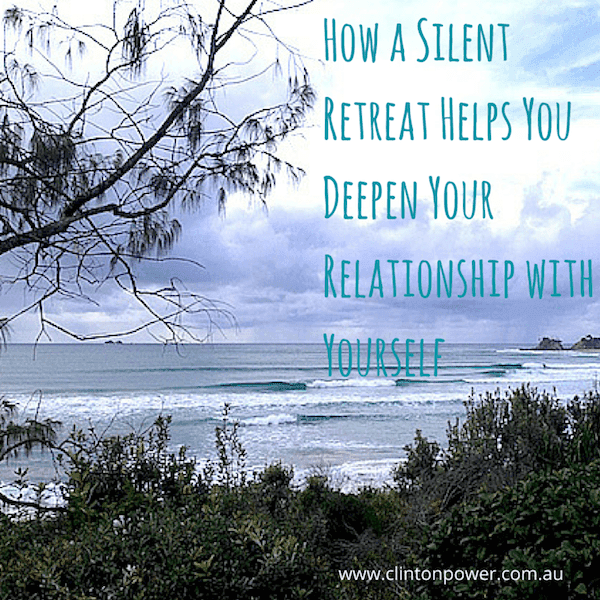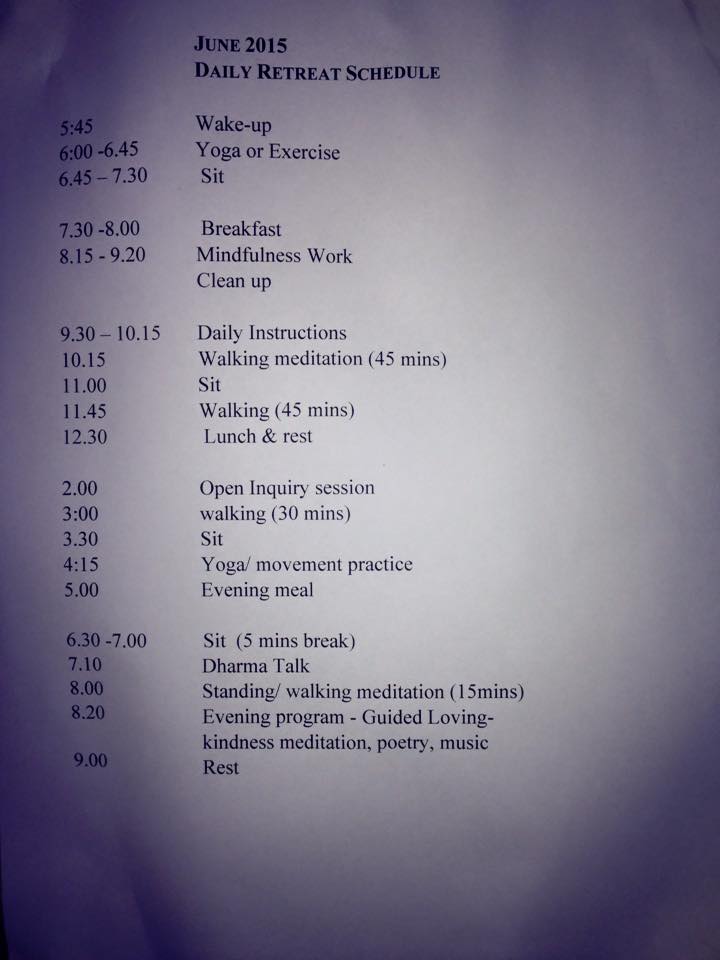I recently returned from beautiful Byron Bay where I attended a week-long silent retreat at the gorgeous Sangsurya Retreat Centre, hosted by Subhana Barzaghi and Carol Perry.
My first retreat was two years ago at the same retreat centre with Subhana and was a wonderful introduction to retreat life. I also interviewed Subhana for The Australia Counselling Podcast in an episode called Mindfulness Meditation and Psychotherapy: A Match Made in Heaven? after that retreat.
About 30 people came from all over the east coast of Australia to meditate together in silence for a week. It was a week of silence, delicious vegetarian food, stunning natural surroundings and wise teachings and meditation instructions to help us all go deeper into our practice of meditation and mindfulness.
Subhana and Carol are both psychotherapists and mindfulness teachers so they wove the beautiful combination of Dharma teachings with their extensive knowledge of psychology and their psychotherapy experience.
Mindfulness helps you make sense of difficult emotions
While I’m not a Buddhist or pretend to intimately understand the Dharma teachings, I find the philosophy used for Insight Meditation to be incredibly helpful for giving an understanding to the complexity of human emotions, how we can heal our own suffering and develop greater compassion and gratitude.
Aside from the fundamental approach of focusing your attention on your breath, we were also encouraged to observe feelings as they come up. In particular, I found the idea of making space for all feelings and sensations very helpful in my practice.
Our teachers used the metaphor of a guest house where all mind states are welcome. So whatever feelings arise – pleasant, unpleasant or neither, you welcome these experiences and even befriend them.
It’s common when you experience something unpleasant you want to avoid (aversion), suppress or reject these feelings or sensations. And when you have pleasant experiences, you can tend to cling to them – also a cause of suffering.
The fascinating thing I found was the more I welcomed the unpleasant experiences with open arms (like the friendly guest house host), they often melted away. This is a powerful life lesson on how to manage difficult experiences in an effective way.
Life on a silent retreat
While it might seem intimidating to some people the idea of so much meditation, the experience was profoundly relaxing and enjoyable.
The structure of each day created a container where it was safe to explore questions about your life, examine old, unhelpful patterns you want to change and learn how to sit with difficult sensations and feelings. We also had periods of yoga and walking meditations – it was also a wonderful circuit breaker for my busy city life.
You can see what our daily retreat schedule consisted of in the image below.
Silence is bliss
When I tell people about the silent retreat, one of the most common responses is “I couldn’t go a week without talking!” While it does seem strange at first to be sharing meals with 30 people and no one is speaking, it’s incredibly liberating to not have to make small talk with lots of people you don’t know.
As the week went on, a remarkable connection developed amongst the group of meditators. Even though we didn’t know each other, an invisible bond started to develop as we all moved towards the same intention of quietening our mind and body and deepened into self-inquiry and reflection. It’s hard to describe, yet the experience was quite magical.
I have had a daily meditation practice for about seven years now since I did the Mindfulness Based Stress Reduction training (MBSR) through Open Ground. If you have never meditated before, I highly recommend this course for beginners. Training is run throughout many capital cities in Australia.
Meditation is now an essential part of my life that helps me lower my stress and anxiety and develop a deeper understanding and compassion for myself and others. It’s a life-long practice that continues to give bring me ongoing benefits for my life, my work and my relationships.
Do you need relationship help?
If you need help with your relationship, contact Clinton Power + Associates on (02) 8968 9323 to discuss your situation and find out how we can help.
Since 2003, Clinton Power has helped thousands of couples and individuals as a counsellor and psychotherapist in private practice in Sydney and online in Australia. Clinton regularly comments in the media on issues of relationships and has appeared on Channel 7, The Sydney Morning Herald, and ABC Radio. Clinton’s eBook, 31 Days to Build a Better Relationship is available through his website or Amazon. Click here to take Clinton’s relationship checkup quiz to find out how well you know your partner.


